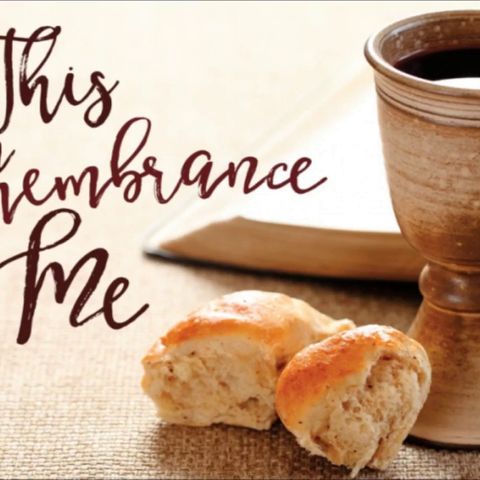15 May 2019 (#5 Session 3) Day 4 Reflections (Do This in Remembrance of Me)

Descarga y escucha en cualquier lugar
Descarga tus episodios favoritos y disfrútalos, ¡dondequiera que estés! Regístrate o inicia sesión ahora para acceder a la escucha sin conexión.
Descripción
Shalom Aleichem and welcome to my bi-monthly blog! Why do we celebrate the Holy Communion? For most of us, it is to remember and proclaim the Lord’s death (1 Cor...
mostra másWhy do we celebrate the Holy Communion?
For most of us, it is to remember and proclaim the Lord’s death (1 Cor 11:26a). Here, the bread and wine represent His body and blood which was given to save us. Now, in order to fully appreciate this, we need to realise that Jesus gave us this command during His Last Supper with His disciples. This meal took place on the eve of the annual Jewish Festival of the Passover, which was to commemorate how God’s judgment passed over the Israelites the night before their exodus from Egypt 1,500 years earlier. As part of the Passover celebration, the Jews were to sacrifice and eat the Passover lamb like how their original ancestors did. This was so as to ultimately point to Jesus, our true Passover Lamb, who was sacrificed on this appointed day so that God’s eternal judgment would pass over us. He is the perfect Lamb of God who died for our sins as we saw in our last session. Jesus is also the True Bread that came down from heaven to give us eternal life, like the Manna that God sent to sustain the Israelites during their subsequent wilderness journey from Egypt to the Promised Land. In Jesus’ death, God revealed His love for us (Jn 3:16), adopting us as His children at the price of His one and only Son.
However, Jesus’ death is also the dowry and bride price to make us His Bride. As we see here, the cup of wine symbolises His blood of the New Covenant - which is essentially a marriage contract. You see, when Israel failed to keep the Law - her old marriage contract with God - the punishment was supposed to be divorce or death. We can read about this in Lev 20:10 and Deut 24:1-4. But God in His love and mercy did neither - He chose instead to die in our place to pay the price of our spiritual adultery. He then rewrote the marriage contract, this time not on tablets of stone but on our hearts, paying the bride price again with His own blood and sealing it with the Holy Spirit, so as to guarantee our eternal union with Him.
We could say that Jesus performed two miracles at two weddings, one at the start and the other at the end of His ministry - turning water into wine in Cana (His first miracle), and turning wine into blood (His last miracle, spiritually speaking); in these acts, we see why He is our Living Water that wells up to eternal life.
The Bible speaks of at least two weddings and a funeral as we see here, but of only one marriage made in Heaven - that of the Lamb and His Bride. Until that Day, until He comes (1 Cor 11:26b), we are called celebrate the Holy Communion, to share in common the bread and wine representing Jesus’ body and blood. When we do so, let us remember that salvation is not about us, our exodus from bondage to sin and journey to the Promised Land; it is about God and His sacrificial love to restore our broken relationship with Him. We are no longer slaves to sin, but children of God and Jesus’ redeemed bride.
Link to presentation - https://docs.google.com/presentation/d/1oJkmnecyCSWf2FF5hmGZyqV6q4aPC-fBwSrwZ1s5JuA/present#slide=id.g4c23645697_0_0
Información
| Autor | Issachar B7D Fellowship |
| Organización | Issachar B7D Fellowship |
| Página web | - |
| Etiquetas |
Copyright 2024 - Spreaker Inc. an iHeartMedia Company

Comentarios